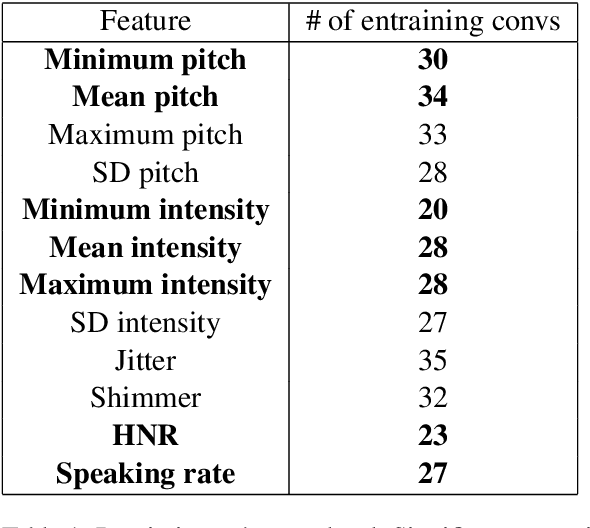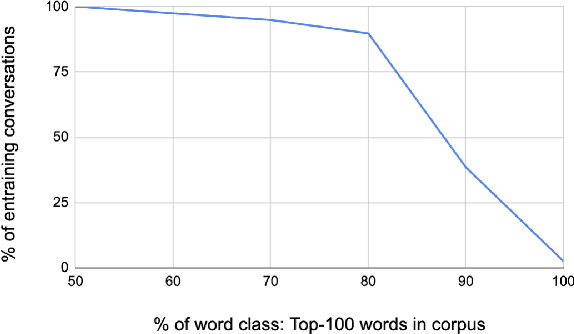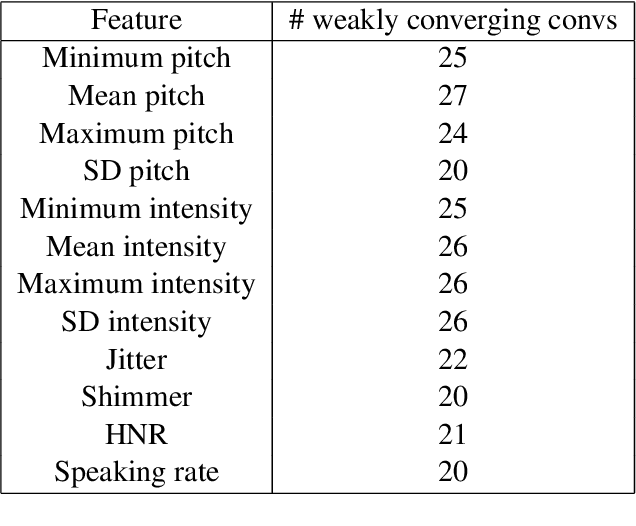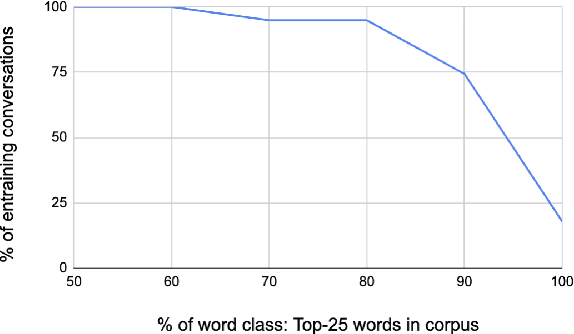Alayna Nguyen
Measuring Entrainment in Spontaneous Code-switched Speech
Nov 13, 2023



Abstract:It is well-known that interlocutors who entrain to one another have more successful conversations than those who do not. Previous research has shown that interlocutors entrain on linguistic features in both written and spoken monolingual domains. More recent work on code-switched communication has also shown preliminary evidence of entrainment on certain aspects of code-switching (CSW). However, such studies of entrainment in code-switched domains have been extremely few and restricted to human-machine textual interactions. Our work studies code-switched spontaneous speech between humans by answering the following questions: 1) Do patterns of written and spoken entrainment in monolingual settings generalize to code-switched settings? 2) Do patterns of entrainment on code-switching in generated text generalize to spontaneous code-switched speech? We find evidence of affirmative answers to both of these questions, with important implications for the potentially "universal" nature of entrainment as a communication phenomenon, and potential applications in inclusive and interactive speech technology.
 Add to Chrome
Add to Chrome Add to Firefox
Add to Firefox Add to Edge
Add to Edge